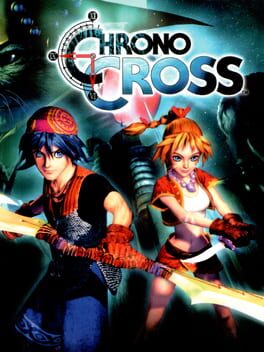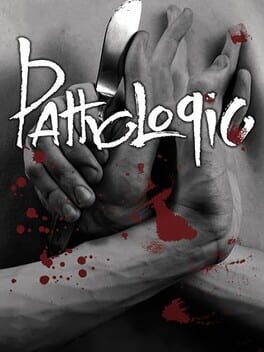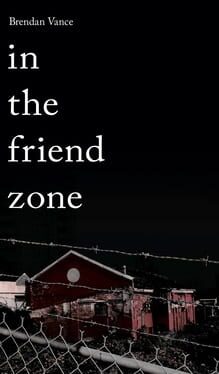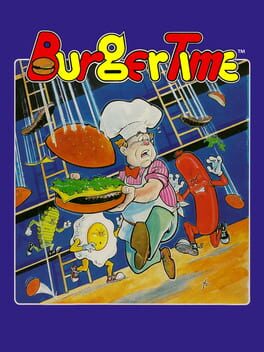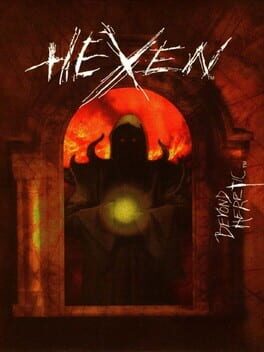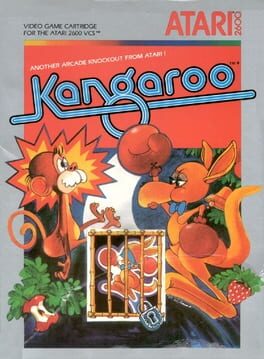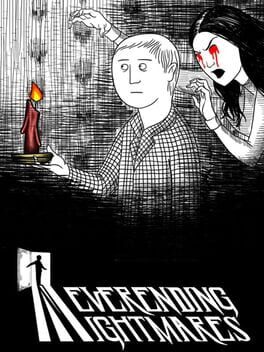wasnotwhynot
Bio
games are alright yeah
games are alright yeah
Badges

Epic Gamer
Played 1000+ games

Popular
Gained 15+ followers

Liked
Gained 10+ total review likes

Well Written
Gained 10+ likes on a single review

Best Friends
Become mutual friends with at least 3 others

Noticed
Gained 3+ followers

Elite Gamer
Played 500+ games

Gamer
Played 250+ games

N00b
Played 100+ games
Favorite Games
1016
Total Games Played
020
Played in 2024
000
Games Backloggd
Recently Played See More
Recently Reviewed See More
freud imagined that everything fictional or aspirational was masking a sexual desire or neurosis. someone develops some desire, probably as a child, which had to be repressed. and so, everything idealistic would be a different type of fantasy that connects to repression. a fantasy of the unknowable desire, or most often usually just a fantasy of sex, and these get funneled into a fantasy of domination. okay, I admit that’s ahistorical, he wouldn’t bring power into it, that’s for his fans and recuperators. but that’s sort of this historical throughline of the “power fantasy.” gamers and gamer-haters, does that ring a bell?
there’s something convincing (but untrue) in blanket freudian statements like… well, everything we do is because of sex, or it’s because of traumas, or it’s because of both. the lie of freudian displacement is that people are able to occupy themselves in such ways that they conceal their desires from themselves, when just as often people agonize over their desires in transparent ways. that doesn’t stop the aforementioned idea from being convincing. one thing someone said to me that stuck with me was something like, “Of course Freud’s ideas aren’t true, just like literature isn’t true. Writers choose to converse their untruth with Freud.”
seeming true is the excrement of art. some of us sickos dig through it knowingly, others do so at least unconsciously. narrative is this spindly thing, that asks to be identified, and identified with, and then in that process constitutes meaning. it’s that indeterminacy that makes me wanna chuck my draft and just say, “we are so fucked.” here I am though, wading the tides of semiotics anyway.
guys are taught semiotics from birth. in guy semiotics, behind every symbol is the same thing, “when am I going to get fucking laid?” we put on our they live glasses and it says REPRODUCE and we say, hell fucking yeah brother. this is the big time. this is what I’ve lived my entire life so far for. at least this is what every other man in my life told me that I’ve lived my whole life for. if I can’t do it, then…
I meant to focus on the unrequited, the “friend zone.” the unrequited is such a historical staple of storytelling that it is in fact unremarkable. I’m going to list nuclear examples in a second, but also imagine, the third in a romcom, the unpicked “loser” in a soap or a shoujo manga; love triangles that salaciously can’t quit, it’s the fastest way to twist the knife in any story.
the ‘fantasy’ behind canonical works of literature like The Sorrows of Young Werther or The Love Song of J. Alfred Prufrock—both at least one time jokingly referred to as incel-fiction—is that someone (the reader) can receive these vulnerable exigencies of masculine failure and not recoil in disgust. there is nothing unobvious to be replaced with anything else. gender fails someone, always. even for people who will continue to identify as a man, gender can only produce excess. there’s billions of gendered people and billions of ways to live. I find I can only understand gender as a heuristic that leads into convenient narratives to uphold existing forms of power.
there’s a stigma around not fucking and a stigma around getting fucked over. and the borders are porous enough that this patriarchy-derived trauma shows up in unexpected places. when I think I’m over it, it gets expressed somehow, in surprising ways. gracefully, it’s because people are accumulations. my pseudo-new patchwork will have some hollow echo of the past as it is reconstituted from the material found around me.
In the Friend Zone is a text adventure made in twine that projects a psychomap of a seemingly true freudian world. so, the church worships a phallus, the roads flow into and from a vagina. all roads lead to “it” and every person has the same desire on their lips. there’s an externalizing, otherworldly sense of heteronormative sex, while everything else is in ruins, or is nonfunctional. the nice guys that populate the friend zone have no identity, no name, only an extremely specific desire that would give meaning to everything they’ve done, alongside endless patheticism.
okay I admit it sounds kind of perfunctory and cringe when I try to summarize it. In the Friend Zone tacitly understands this, the writing leans hard away from prosaic descriptions. it’s somewhere in-between surrealist and speculative writing traditions. there’s an attention to detail in the work that makes everything occluded and hard to make out. there’s a sense that the world is only like this because I’m squinting to see it one way, so there’s also a sense that the world can’t actually be like this. it embodies a paradox of male fatalism. it takes an extreme amount of mental duress and work to maintain the tragedy of the friend zone, even though in the moment it seems like an all-encompassing, natural category of life.
perfunctory and cringe might be necessary for truth to transcend the seeming true. in other words, modern masculinity is freud for dummies. I can’t explain it without opening myself up like a loser. an atrophied part of me still holds that fear of cringe, that loserdom I lived through. my inability to treat my body like a tool, or a weapon, my inability to see my worth as a person defined by my ability to “play the game,” my inability to see a future for myself because I can’t imagine a nuclear family…
and so In the Friend Zone has another tone to its writing, it delivers forceful, rushed clunkers, almost like an exploitation film gone wrong, with sinkers like “Why did you think this would work?” and “If anyone's going to fuck [her], it's going to be me!” but the thing is, truly, actually naturalistic writing always carries some level of ‘cringe’ with it, a false derealization back into the real, which clashes with fiction’s own unnatural projection of idealism. In the Friend Zone plays around with, and sincerely delivers on its cringe, because it’s a necessary component of masculine failure. it’s these borders around embarrassment that make “being a man” natural for some people, and hopeless for others.
In the Friend Zone eventually settles as the world somehow becomes familiar. the pilgrim (the user-defined player character) gets used to text’s tonal duality and resigns themselves to the symbolic nightmare that seeps under embarrassment. and then a quest emerges, which is the search for the perfect question, the askhole that will somehow craft the magic words out of the friendzone… this game has an inventory (hence qualifying as a text adventure), though it can only be populated with souls of dead nice guys, their souls forming the aforementioned “perfect questions.” the souls kind of float around in the world like Dark Souls blood spatters. these need to be presented at the vagina shrine to get out of the friend zone (lol), though I won’t summarize what actually happens there just yet.
I think In the Friend Zone doesn’t exactly allegorize the experience of being “in the friend zone” in this second part, but it maps up the excessively obvious ideology of mainstream videogames as being a sort of a capture point, or sponge, for masculine failure and contradiction. it’s telling that the only way to progress forward is stumbling on the corpses of other nice guys. by capturing and breathing in their souls, a perfect question forms inside your lungs. the idea that male success fashions itself out other failed male bodies, rendered in summary, sounds heavy-handed. in the game, it feels helpless, paranoid, fraught.
there is a plain-spoken story within In the Friend Zone. like I noted prior, it’s exclusively expressed in the language of “cringe,” or in plain-spoken text, so it’s to be understood as an order above the nightmare, probably the actual events which created a friend zone. this is a ‘real’ love triangle, between the user-inputted object of desire and someone else named leslie. it’s unclear if the player vied for the same attentions as leslie, or if leslie is yet another alter ego externalization of the player. at one point, leslie has to relive their experience of being bullied by the highest ranking nice guy, along the fault-lines of not being masculine enough.
though multiple playthroughs of the game, I tried to piece together this ‘real’ narrative of the game, so to actually map out the love triangle, and what actually happened to leslie. this wasn’t really possible. I’m not saying it isn’t present in the game, but it’s too elliptical, and writing a youtube lore explainer would be bullshit anyway. I think this denial is more powerful than my expectation of there being a pat, complete, full answer to why, after turning on the game, I have found myself once again in the friend zone…
leslie isn’t really leslie, I guess. in a turn that I could only describe as terry pratchett-core (although still more kafkaesque than first blush, think of gregor samsa “catching a bug” and well…) they turn out to be the other person invading the friend zone, now christened as the white knight. I personally think it’s a funny turn, anyway. they’ve decided the only way to cope with the friend zone is to reform it, through violence. the complete brutality of their scenes recalls the stark, naked violence of Don Quixote, which I find to be literally an epic on masculine failure. by channeling the heroic violence of knight errantry, In the Friend Zone feels very much like, well, a videogame set up, misfiring its symbols into some felt representation of what’s going on below the surface of popular games. my earlier allusion to Dark Souls was not accidental, as I suppose the game’s allusions aren’t either.
remember, to escape the friend zone, you need to find and present the perfectly formulated questions, from corpses that are maybe yourself, or are maybe outcomes that have yet to be theorized, but branch off from this misery machine. this is the centralizing mechanic found In the Friend Zone, so it is shocking that these collectible unfutures can be spent on the only other identifiable prisoners lurking in the friend zone. when I saw the option to literally ‘spend’ my breath of life on this unhinged avatar of self-destruction, I wondered if I encountered a glitch or something. at least until I found it repeated with every other encounter with the white knight.
(I said other identifiable prisoners. well, there is also the traveler. the less said about him, the better. he’s a funny little guy, completely unsavory. he seems to purposefully have the detachment of the “manosphere” grifters. he’s in the friend zone to find marks, suckers, and specimens. In the Friend Zone imagines him trapped too, a liminal figure who is unfulfilled as well. as an abusive predator, he can’t escape the binding structure of his own lie.)
I horded my questions, naturally. even though I was trapped in the friend zone, I mean… I kind of thought I was going to get out. I’m just built differently, you know? with my huge brain, my critical thinking, my smart pose, my universal aspects that totally aren’t gendered at all, I figured out the central puzzle of the game, and mapped out the interactions between the actors. I solved the friend zone, or at least was led to believe it was something that could be mapped out and solved.
none of the questions lead out of the friend zone. none of the combinations of flags and variables will lead out, either. there’s no stereotypical secret end. there’s no code or combination out of the prison. there are actions and consequences in the friend zone, as many scenes and choices in the latter half turn out to be optional. but merely modifying the friend zone, contouring it, trying to scientifically solve or engineer it, only actualizes it more. that is the parting twist of the game, the only lingering conclusion: the friend zone isn’t other people.
this can be understood as a third order, above the ‘real’ narrative, above the embarrassing nightmare. once it’s established there’s no external way out, and the pilgrim has to make the change within himself/herself/themself, the magic circle collapses along with its ritual, and the game disappears like a mirage. we return to irl, which was just me clutching my phone in bed. as a coda, the author of the game leaves a parting message, reaching out in kindness and sympathy. maybe the future will be different…
booo! I knew that already. everyone clowns on incels because they know that ‘already,’ and the less I think about my awkward childhood the better. I’m half joking, the ending feels in conversation with the shape of desire in lots of mainstream games, and it tries to point, you know, outside of these kinds of prisons, or at least remark on an awareness of them.
after failing to alchemize some narrative climax for the pilgrim trapped in the friend zone, I remembered that I could spend my questions on other people trapped inside. this is made to be a tortuous process. the player can only ask 1 question per encounter (contrasted with the absurd outpouring of every question at once toward the romantic pedestal). the game also autosaves and has no back button. there is some hostile engineering going on here. I also get the point, as someone familiar with straight male friendships, lol. so, I get 3 total questions for the white knight, and a miserly 1 for the traveler. these questions do sketch out alternative narratives, or potentials that the friend zone makes into torture to half-realize. these questions are how I characterized the traveler in the prior parenthetical, who otherwise seems like a convenient exegesis for the narrative.
a normal player probably wouldn’t replay the game a total of 9+ times in order to make frail or nonexistent bonds with these jokey bit-players. I’m not normal, so that’s how I caught that leslie uses they/them pronouns. it’s essentially buried within the game. I think this is a stilted, but workable way to keep the focus on inherited, hegemonic trauma, rather than making it a drama about rising above the horrible bastards. this game is queer in the sense of being a game about gender failure, but it isn’t queer in the sense of representing anything inherently liberating and euphoric. this is a definition, not a value judgement.
the way I understood it, the white knight is a mechanism that can talk of or about leslie. so the white knight is fronting for leslie. what at first seems like a joke stretched to its violent end, a parody of the male feminist caught perpetually self-policing their own failure, reveals itself to be something more terminating. leslie is literally, violently trying to destroy every mirror image of their masculinity, in order to reconcile their new identity that will be now trapped in a friendless zone, being alienated from male traditions and rituals, and anxious about the potential of romantic closure because of this liminal identity. now that recognition is a painful one.
processing and talking about masculine failure, or even my inability to completely identify with masculine failure, feels like a kind of black magic. I fear conceding too much and rendering my identity submissive to the neurosis of hegemonic culture. I think gender can only become something liberating by talking through all of its contradictions and maintaining a playful self-awareness. yes, including the embarrassing stuff. but talking about gender from the male side can sometimes feel like I’m stacking negative karma, that some incel somewhere is going to personally thank me for standing up to wokeness. it is way more convenient to just never talk about it, perpetuate the stigma, and pretend it never happened.
most of the time, I drop my visor, and choose to be the white knight.
there’s something convincing (but untrue) in blanket freudian statements like… well, everything we do is because of sex, or it’s because of traumas, or it’s because of both. the lie of freudian displacement is that people are able to occupy themselves in such ways that they conceal their desires from themselves, when just as often people agonize over their desires in transparent ways. that doesn’t stop the aforementioned idea from being convincing. one thing someone said to me that stuck with me was something like, “Of course Freud’s ideas aren’t true, just like literature isn’t true. Writers choose to converse their untruth with Freud.”
seeming true is the excrement of art. some of us sickos dig through it knowingly, others do so at least unconsciously. narrative is this spindly thing, that asks to be identified, and identified with, and then in that process constitutes meaning. it’s that indeterminacy that makes me wanna chuck my draft and just say, “we are so fucked.” here I am though, wading the tides of semiotics anyway.
guys are taught semiotics from birth. in guy semiotics, behind every symbol is the same thing, “when am I going to get fucking laid?” we put on our they live glasses and it says REPRODUCE and we say, hell fucking yeah brother. this is the big time. this is what I’ve lived my entire life so far for. at least this is what every other man in my life told me that I’ve lived my whole life for. if I can’t do it, then…
I meant to focus on the unrequited, the “friend zone.” the unrequited is such a historical staple of storytelling that it is in fact unremarkable. I’m going to list nuclear examples in a second, but also imagine, the third in a romcom, the unpicked “loser” in a soap or a shoujo manga; love triangles that salaciously can’t quit, it’s the fastest way to twist the knife in any story.
the ‘fantasy’ behind canonical works of literature like The Sorrows of Young Werther or The Love Song of J. Alfred Prufrock—both at least one time jokingly referred to as incel-fiction—is that someone (the reader) can receive these vulnerable exigencies of masculine failure and not recoil in disgust. there is nothing unobvious to be replaced with anything else. gender fails someone, always. even for people who will continue to identify as a man, gender can only produce excess. there’s billions of gendered people and billions of ways to live. I find I can only understand gender as a heuristic that leads into convenient narratives to uphold existing forms of power.
there’s a stigma around not fucking and a stigma around getting fucked over. and the borders are porous enough that this patriarchy-derived trauma shows up in unexpected places. when I think I’m over it, it gets expressed somehow, in surprising ways. gracefully, it’s because people are accumulations. my pseudo-new patchwork will have some hollow echo of the past as it is reconstituted from the material found around me.
In the Friend Zone is a text adventure made in twine that projects a psychomap of a seemingly true freudian world. so, the church worships a phallus, the roads flow into and from a vagina. all roads lead to “it” and every person has the same desire on their lips. there’s an externalizing, otherworldly sense of heteronormative sex, while everything else is in ruins, or is nonfunctional. the nice guys that populate the friend zone have no identity, no name, only an extremely specific desire that would give meaning to everything they’ve done, alongside endless patheticism.
okay I admit it sounds kind of perfunctory and cringe when I try to summarize it. In the Friend Zone tacitly understands this, the writing leans hard away from prosaic descriptions. it’s somewhere in-between surrealist and speculative writing traditions. there’s an attention to detail in the work that makes everything occluded and hard to make out. there’s a sense that the world is only like this because I’m squinting to see it one way, so there’s also a sense that the world can’t actually be like this. it embodies a paradox of male fatalism. it takes an extreme amount of mental duress and work to maintain the tragedy of the friend zone, even though in the moment it seems like an all-encompassing, natural category of life.
perfunctory and cringe might be necessary for truth to transcend the seeming true. in other words, modern masculinity is freud for dummies. I can’t explain it without opening myself up like a loser. an atrophied part of me still holds that fear of cringe, that loserdom I lived through. my inability to treat my body like a tool, or a weapon, my inability to see my worth as a person defined by my ability to “play the game,” my inability to see a future for myself because I can’t imagine a nuclear family…
and so In the Friend Zone has another tone to its writing, it delivers forceful, rushed clunkers, almost like an exploitation film gone wrong, with sinkers like “Why did you think this would work?” and “If anyone's going to fuck [her], it's going to be me!” but the thing is, truly, actually naturalistic writing always carries some level of ‘cringe’ with it, a false derealization back into the real, which clashes with fiction’s own unnatural projection of idealism. In the Friend Zone plays around with, and sincerely delivers on its cringe, because it’s a necessary component of masculine failure. it’s these borders around embarrassment that make “being a man” natural for some people, and hopeless for others.
In the Friend Zone eventually settles as the world somehow becomes familiar. the pilgrim (the user-defined player character) gets used to text’s tonal duality and resigns themselves to the symbolic nightmare that seeps under embarrassment. and then a quest emerges, which is the search for the perfect question, the askhole that will somehow craft the magic words out of the friendzone… this game has an inventory (hence qualifying as a text adventure), though it can only be populated with souls of dead nice guys, their souls forming the aforementioned “perfect questions.” the souls kind of float around in the world like Dark Souls blood spatters. these need to be presented at the vagina shrine to get out of the friend zone (lol), though I won’t summarize what actually happens there just yet.
I think In the Friend Zone doesn’t exactly allegorize the experience of being “in the friend zone” in this second part, but it maps up the excessively obvious ideology of mainstream videogames as being a sort of a capture point, or sponge, for masculine failure and contradiction. it’s telling that the only way to progress forward is stumbling on the corpses of other nice guys. by capturing and breathing in their souls, a perfect question forms inside your lungs. the idea that male success fashions itself out other failed male bodies, rendered in summary, sounds heavy-handed. in the game, it feels helpless, paranoid, fraught.
there is a plain-spoken story within In the Friend Zone. like I noted prior, it’s exclusively expressed in the language of “cringe,” or in plain-spoken text, so it’s to be understood as an order above the nightmare, probably the actual events which created a friend zone. this is a ‘real’ love triangle, between the user-inputted object of desire and someone else named leslie. it’s unclear if the player vied for the same attentions as leslie, or if leslie is yet another alter ego externalization of the player. at one point, leslie has to relive their experience of being bullied by the highest ranking nice guy, along the fault-lines of not being masculine enough.
though multiple playthroughs of the game, I tried to piece together this ‘real’ narrative of the game, so to actually map out the love triangle, and what actually happened to leslie. this wasn’t really possible. I’m not saying it isn’t present in the game, but it’s too elliptical, and writing a youtube lore explainer would be bullshit anyway. I think this denial is more powerful than my expectation of there being a pat, complete, full answer to why, after turning on the game, I have found myself once again in the friend zone…
leslie isn’t really leslie, I guess. in a turn that I could only describe as terry pratchett-core (although still more kafkaesque than first blush, think of gregor samsa “catching a bug” and well…) they turn out to be the other person invading the friend zone, now christened as the white knight. I personally think it’s a funny turn, anyway. they’ve decided the only way to cope with the friend zone is to reform it, through violence. the complete brutality of their scenes recalls the stark, naked violence of Don Quixote, which I find to be literally an epic on masculine failure. by channeling the heroic violence of knight errantry, In the Friend Zone feels very much like, well, a videogame set up, misfiring its symbols into some felt representation of what’s going on below the surface of popular games. my earlier allusion to Dark Souls was not accidental, as I suppose the game’s allusions aren’t either.
remember, to escape the friend zone, you need to find and present the perfectly formulated questions, from corpses that are maybe yourself, or are maybe outcomes that have yet to be theorized, but branch off from this misery machine. this is the centralizing mechanic found In the Friend Zone, so it is shocking that these collectible unfutures can be spent on the only other identifiable prisoners lurking in the friend zone. when I saw the option to literally ‘spend’ my breath of life on this unhinged avatar of self-destruction, I wondered if I encountered a glitch or something. at least until I found it repeated with every other encounter with the white knight.
(I said other identifiable prisoners. well, there is also the traveler. the less said about him, the better. he’s a funny little guy, completely unsavory. he seems to purposefully have the detachment of the “manosphere” grifters. he’s in the friend zone to find marks, suckers, and specimens. In the Friend Zone imagines him trapped too, a liminal figure who is unfulfilled as well. as an abusive predator, he can’t escape the binding structure of his own lie.)
I horded my questions, naturally. even though I was trapped in the friend zone, I mean… I kind of thought I was going to get out. I’m just built differently, you know? with my huge brain, my critical thinking, my smart pose, my universal aspects that totally aren’t gendered at all, I figured out the central puzzle of the game, and mapped out the interactions between the actors. I solved the friend zone, or at least was led to believe it was something that could be mapped out and solved.
none of the questions lead out of the friend zone. none of the combinations of flags and variables will lead out, either. there’s no stereotypical secret end. there’s no code or combination out of the prison. there are actions and consequences in the friend zone, as many scenes and choices in the latter half turn out to be optional. but merely modifying the friend zone, contouring it, trying to scientifically solve or engineer it, only actualizes it more. that is the parting twist of the game, the only lingering conclusion: the friend zone isn’t other people.
this can be understood as a third order, above the ‘real’ narrative, above the embarrassing nightmare. once it’s established there’s no external way out, and the pilgrim has to make the change within himself/herself/themself, the magic circle collapses along with its ritual, and the game disappears like a mirage. we return to irl, which was just me clutching my phone in bed. as a coda, the author of the game leaves a parting message, reaching out in kindness and sympathy. maybe the future will be different…
booo! I knew that already. everyone clowns on incels because they know that ‘already,’ and the less I think about my awkward childhood the better. I’m half joking, the ending feels in conversation with the shape of desire in lots of mainstream games, and it tries to point, you know, outside of these kinds of prisons, or at least remark on an awareness of them.
after failing to alchemize some narrative climax for the pilgrim trapped in the friend zone, I remembered that I could spend my questions on other people trapped inside. this is made to be a tortuous process. the player can only ask 1 question per encounter (contrasted with the absurd outpouring of every question at once toward the romantic pedestal). the game also autosaves and has no back button. there is some hostile engineering going on here. I also get the point, as someone familiar with straight male friendships, lol. so, I get 3 total questions for the white knight, and a miserly 1 for the traveler. these questions do sketch out alternative narratives, or potentials that the friend zone makes into torture to half-realize. these questions are how I characterized the traveler in the prior parenthetical, who otherwise seems like a convenient exegesis for the narrative.
a normal player probably wouldn’t replay the game a total of 9+ times in order to make frail or nonexistent bonds with these jokey bit-players. I’m not normal, so that’s how I caught that leslie uses they/them pronouns. it’s essentially buried within the game. I think this is a stilted, but workable way to keep the focus on inherited, hegemonic trauma, rather than making it a drama about rising above the horrible bastards. this game is queer in the sense of being a game about gender failure, but it isn’t queer in the sense of representing anything inherently liberating and euphoric. this is a definition, not a value judgement.
the way I understood it, the white knight is a mechanism that can talk of or about leslie. so the white knight is fronting for leslie. what at first seems like a joke stretched to its violent end, a parody of the male feminist caught perpetually self-policing their own failure, reveals itself to be something more terminating. leslie is literally, violently trying to destroy every mirror image of their masculinity, in order to reconcile their new identity that will be now trapped in a friendless zone, being alienated from male traditions and rituals, and anxious about the potential of romantic closure because of this liminal identity. now that recognition is a painful one.
processing and talking about masculine failure, or even my inability to completely identify with masculine failure, feels like a kind of black magic. I fear conceding too much and rendering my identity submissive to the neurosis of hegemonic culture. I think gender can only become something liberating by talking through all of its contradictions and maintaining a playful self-awareness. yes, including the embarrassing stuff. but talking about gender from the male side can sometimes feel like I’m stacking negative karma, that some incel somewhere is going to personally thank me for standing up to wokeness. it is way more convenient to just never talk about it, perpetuate the stigma, and pretend it never happened.
most of the time, I drop my visor, and choose to be the white knight.
it was cool to discover Hexen as a missing link, or an inspiration, for the puzzle maps in Master Levels for Doom II or Eternal Doom (not Doom Eternal, scrubs). Hexen still feels distinct from doom because of the dark fantasy stuff. Hexen will also always flow differently than Doom because of the lack of hit-scan enemies. it never really tells me, don’t stand here, don’t walk in this way, don’t leave this guy alive. the action is less engaging in this specific sense because there are less micro-decisions to make in how each encounter is approached and literally looked at. Hexen makes up for it by the grueling complexity of its world, or arguably hits a good balance between that and its medium complex action. there’s a massive cognitive load put into that struggle for survival, while also managing my inventory, while also putting my close sight on every single possible suspicious detail. like burying carthage while battling for it or something.
it’s also a delightfully goofy game that plays around as it tests the player. it’s genuinely funny to hit a switch and watch 30 wizards float out of the walls.
I can’t say it’s painless. if, maybe, ideal puzzle design requires that you can visibly see and measure your inputs, it’s maniacal to make a puzzle game where your inputs interact with something you may or may not have seen. Hexen is the distended puzzle game, the whole world feels like a mechanical organism that shifts and stirs when I stand on its parts, or when I poke at its holes. it’s very difficult to decide if I’m going the right way, if I’ve been in specific places or not, or if I still need to be in one place or another. Hexen has a leg up (or down) by usually conforming to a logical system. the trouble is that the player never knows what logic or what system. and it still preserves the forbidden feeling, the feeling of impossible discovery, by having walls I needed to rotate or walk-through, by having invisible floating paths I needed to find and follow.
videogames absorbed fantasy in this way, they have reconstructed a generic sensibility out of a body of meditations on history and ritual. Hexen is fascinated with the mystery this presents. like a fromsoftware joint, it teases that possibility with violence. it’s a monotonous glaze toward the search for something! so this search will be painful and hard fought. because of really game designy tricks (and limitations of the doom engine) the feeling of the search is soooo embodied. I always approach fantasy from the search. I’m asking if it could be allegory, where the symbols came from, why these specific ones, what could it possibly all mean. it’s probably meaningless in Hexen, which is why the search itself set my mind afire. literally how good are you at close reading the juvenile nothings, will you find the rosetta stone, the secret pattern, they key that leads out of this obsession…
it’s also a delightfully goofy game that plays around as it tests the player. it’s genuinely funny to hit a switch and watch 30 wizards float out of the walls.
I can’t say it’s painless. if, maybe, ideal puzzle design requires that you can visibly see and measure your inputs, it’s maniacal to make a puzzle game where your inputs interact with something you may or may not have seen. Hexen is the distended puzzle game, the whole world feels like a mechanical organism that shifts and stirs when I stand on its parts, or when I poke at its holes. it’s very difficult to decide if I’m going the right way, if I’ve been in specific places or not, or if I still need to be in one place or another. Hexen has a leg up (or down) by usually conforming to a logical system. the trouble is that the player never knows what logic or what system. and it still preserves the forbidden feeling, the feeling of impossible discovery, by having walls I needed to rotate or walk-through, by having invisible floating paths I needed to find and follow.
videogames absorbed fantasy in this way, they have reconstructed a generic sensibility out of a body of meditations on history and ritual. Hexen is fascinated with the mystery this presents. like a fromsoftware joint, it teases that possibility with violence. it’s a monotonous glaze toward the search for something! so this search will be painful and hard fought. because of really game designy tricks (and limitations of the doom engine) the feeling of the search is soooo embodied. I always approach fantasy from the search. I’m asking if it could be allegory, where the symbols came from, why these specific ones, what could it possibly all mean. it’s probably meaningless in Hexen, which is why the search itself set my mind afire. literally how good are you at close reading the juvenile nothings, will you find the rosetta stone, the secret pattern, they key that leads out of this obsession…
I am pretty sure Neverending Nightmares is set in the late 1800s to give its edward gorey riff more authenticity, in the perfectly naïve way that indie games plumb this or that aesthetic in order to stand out, rather ignorant of what they’re standing in. still, the extravagant wealth portrayed in this facsimile of high living could have only been accumulated through slavery or colonialism (or of course, both). implicitly then, racism and class war drape the warped nursery that facilitates playing chicken with the protagonist’s misogynistic impulses, ones that he inevitably succumbs to in his imagination, again and again. notably, only ever in his imagination. he is fighting the ghosts of his unconscious drive, things that he inherited but does not ever quite completely understand.
if there is a coherent story, it’s only to create a non-productive, schizo-oedipal between sister/daughter/wife. it is very enjoyable to me how much the author does not understand freud, because the legacy of freud is much better mangled like this and made into worthless dead-ends. so it is interesting, then, how much the game delimits its own potential. its mechanics are ever-present, and demand some joke-like spectrum of mastery. but they do not develop really. and the game still resists being stripped down to its essential components, adding disjunctions and doodads that lead to non-linear, non-connecting zones. or more often, plain, gratuitous, horrible self-violence, as if it is the only possible response to what the protagonist has inherited. the idea of non-productive flows comes to my mind, in a way that naturally stymies and cuts off the post-Silent Hill 2 psychodrama in a way that’s a mixture of stoic deliberation and totally natural submission into a complete portrayal of impulses (also, budget constraints, lol).
and so much like this. there’s a dream sequence in The Book of Franza by ingeborg bachmann where a father points out to his daughter: “this is the cemetery of buried daughters,” and hearing this she sobs. this exchange, metaphor doubled, is charged with patriarchal violence, seeming to say, I will bury you there, or, haven’t I already? yet it’s also farcical, as the father and daughter yet live, and the implication hangs on without ever getting held on. if I’m able to step outside of jung for a moment, I can re-recognize this scene as shared grief. the position-in-relation, instead of the position-of-satisfaction. should we not mourn for the daughters? I think this counterfactual in vain, the specter of neurosis looms all around, and I don’t yet know how to forgive it.
I love many scenes in books and I don’t end up remembering them. I’ve held on to this one like a reality marble, a final projection, and I think it’s because it’s a physical place. a place you can look at and go to, one you can walk around in. this physical, dreamed up allegory of endings, is… well it’s a lot like a videogame, to me. it is, I guess, the evil version of the museum of dead wifery, one that’s to be taken at face value, instead of integrated into an ironic system. it provokes a stale romanticism, a domestic grief, a remove from the problems, as they’re used to garnish existing grief, that is converted into relation only by a selfish desire to embody the more difficult, accumulated forms of covalent suffering from this place of remove.
lots of games are like this, including Neverending Nightmares. I suppose if I had more integrity I would condemn it, if I believed art is our vehicle into a better world. cecile pineda wrote that writing can “…provide a moment of grace, both for her who writes and him who reads, in a very dark world.” her novel Face is almost a constructive case against degradation, as it refuses to be specifically one problem of degradation. and so like that book, it is a stupid, pithy fact that I relate to the honest depictions of intrusive violence in Neverending Nightmares. maybe not all of them at once, and maybe not as much anymore, but if I could discard every mistake and thoughtcrime I’ve made at once, I probably wouldn’t be writing about games anymore.
if there is a coherent story, it’s only to create a non-productive, schizo-oedipal between sister/daughter/wife. it is very enjoyable to me how much the author does not understand freud, because the legacy of freud is much better mangled like this and made into worthless dead-ends. so it is interesting, then, how much the game delimits its own potential. its mechanics are ever-present, and demand some joke-like spectrum of mastery. but they do not develop really. and the game still resists being stripped down to its essential components, adding disjunctions and doodads that lead to non-linear, non-connecting zones. or more often, plain, gratuitous, horrible self-violence, as if it is the only possible response to what the protagonist has inherited. the idea of non-productive flows comes to my mind, in a way that naturally stymies and cuts off the post-Silent Hill 2 psychodrama in a way that’s a mixture of stoic deliberation and totally natural submission into a complete portrayal of impulses (also, budget constraints, lol).
and so much like this. there’s a dream sequence in The Book of Franza by ingeborg bachmann where a father points out to his daughter: “this is the cemetery of buried daughters,” and hearing this she sobs. this exchange, metaphor doubled, is charged with patriarchal violence, seeming to say, I will bury you there, or, haven’t I already? yet it’s also farcical, as the father and daughter yet live, and the implication hangs on without ever getting held on. if I’m able to step outside of jung for a moment, I can re-recognize this scene as shared grief. the position-in-relation, instead of the position-of-satisfaction. should we not mourn for the daughters? I think this counterfactual in vain, the specter of neurosis looms all around, and I don’t yet know how to forgive it.
I love many scenes in books and I don’t end up remembering them. I’ve held on to this one like a reality marble, a final projection, and I think it’s because it’s a physical place. a place you can look at and go to, one you can walk around in. this physical, dreamed up allegory of endings, is… well it’s a lot like a videogame, to me. it is, I guess, the evil version of the museum of dead wifery, one that’s to be taken at face value, instead of integrated into an ironic system. it provokes a stale romanticism, a domestic grief, a remove from the problems, as they’re used to garnish existing grief, that is converted into relation only by a selfish desire to embody the more difficult, accumulated forms of covalent suffering from this place of remove.
lots of games are like this, including Neverending Nightmares. I suppose if I had more integrity I would condemn it, if I believed art is our vehicle into a better world. cecile pineda wrote that writing can “…provide a moment of grace, both for her who writes and him who reads, in a very dark world.” her novel Face is almost a constructive case against degradation, as it refuses to be specifically one problem of degradation. and so like that book, it is a stupid, pithy fact that I relate to the honest depictions of intrusive violence in Neverending Nightmares. maybe not all of them at once, and maybe not as much anymore, but if I could discard every mistake and thoughtcrime I’ve made at once, I probably wouldn’t be writing about games anymore.
